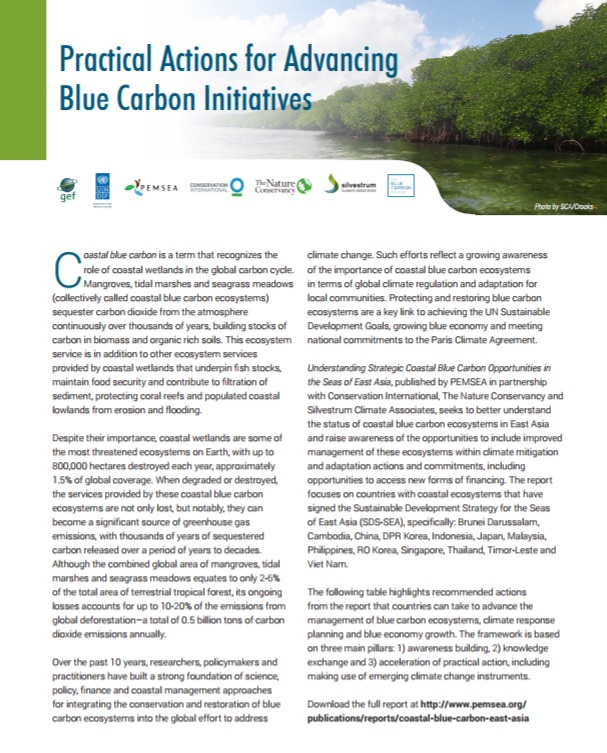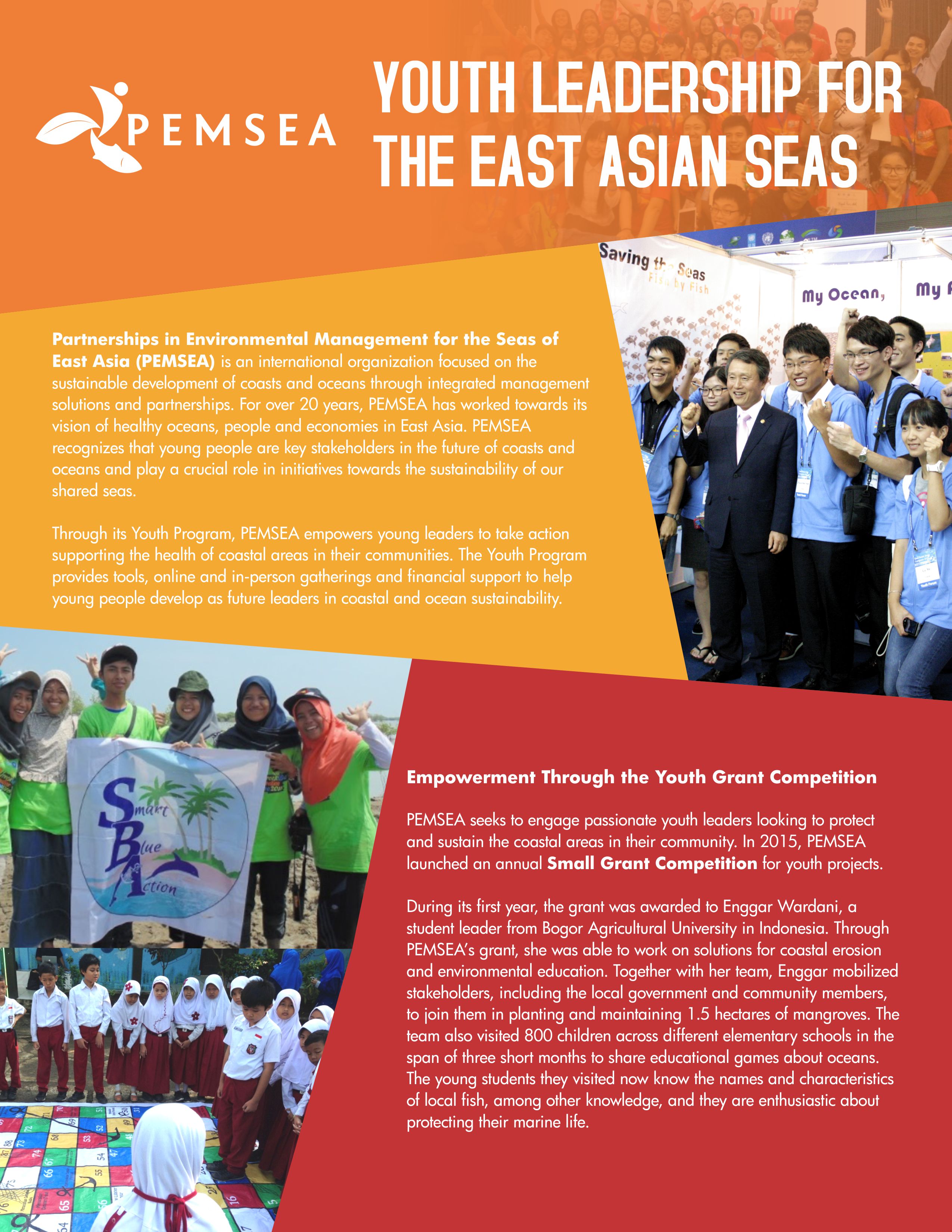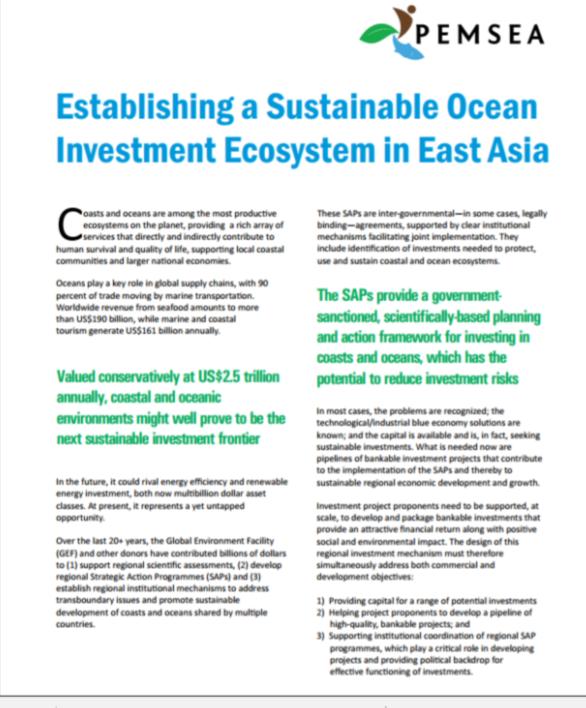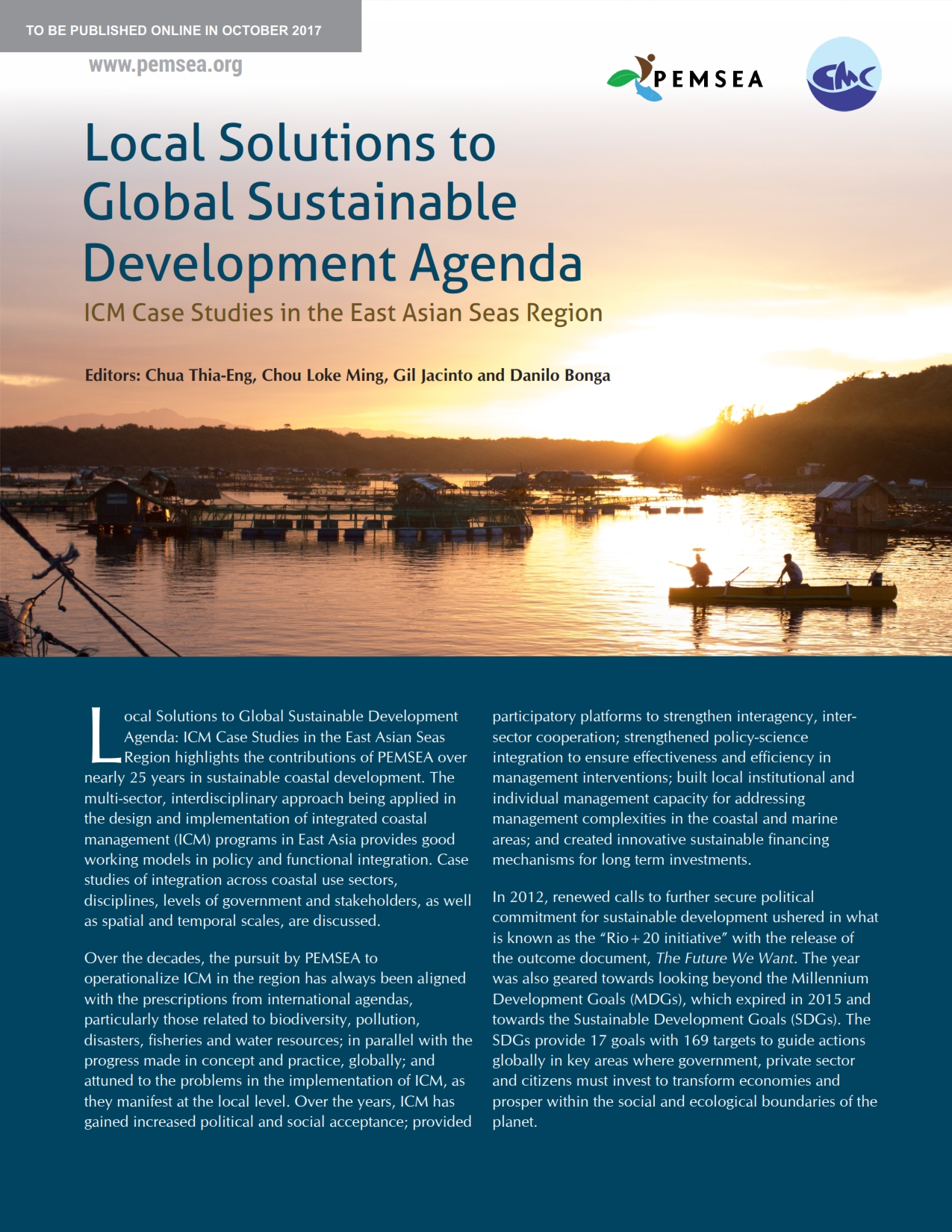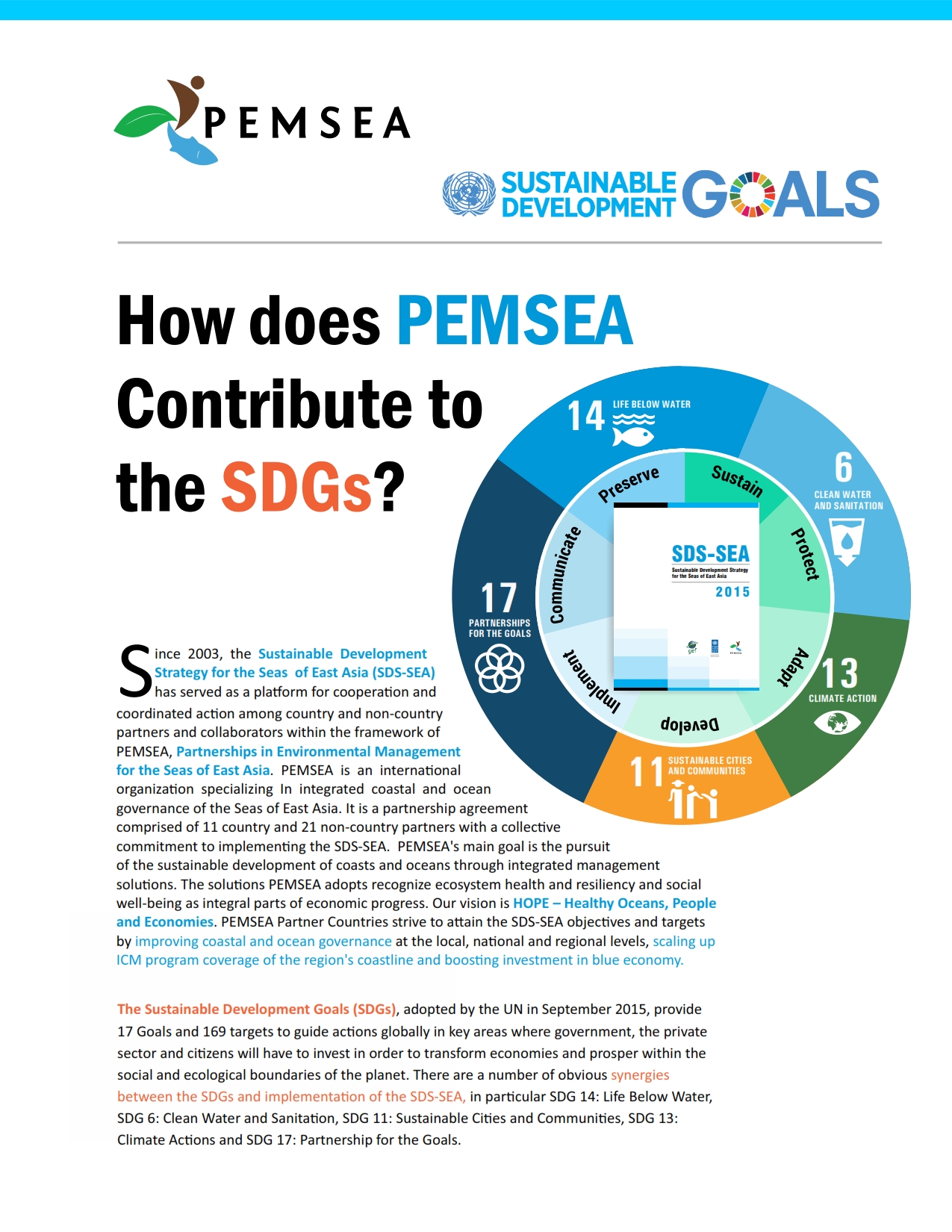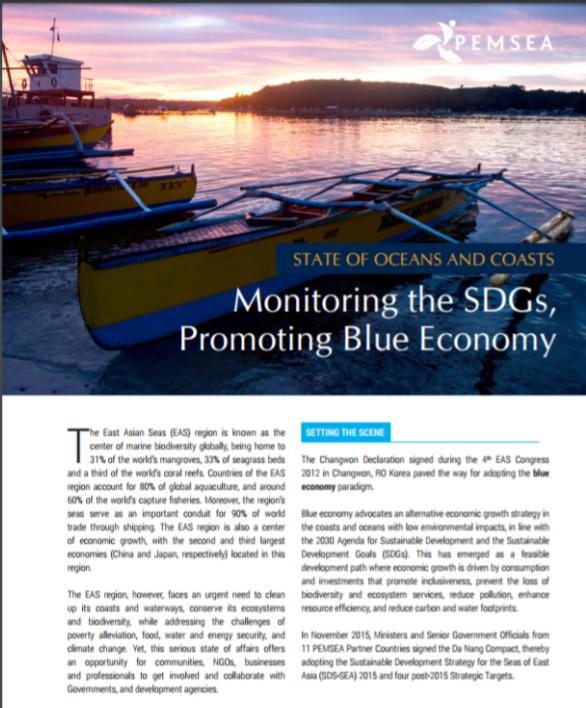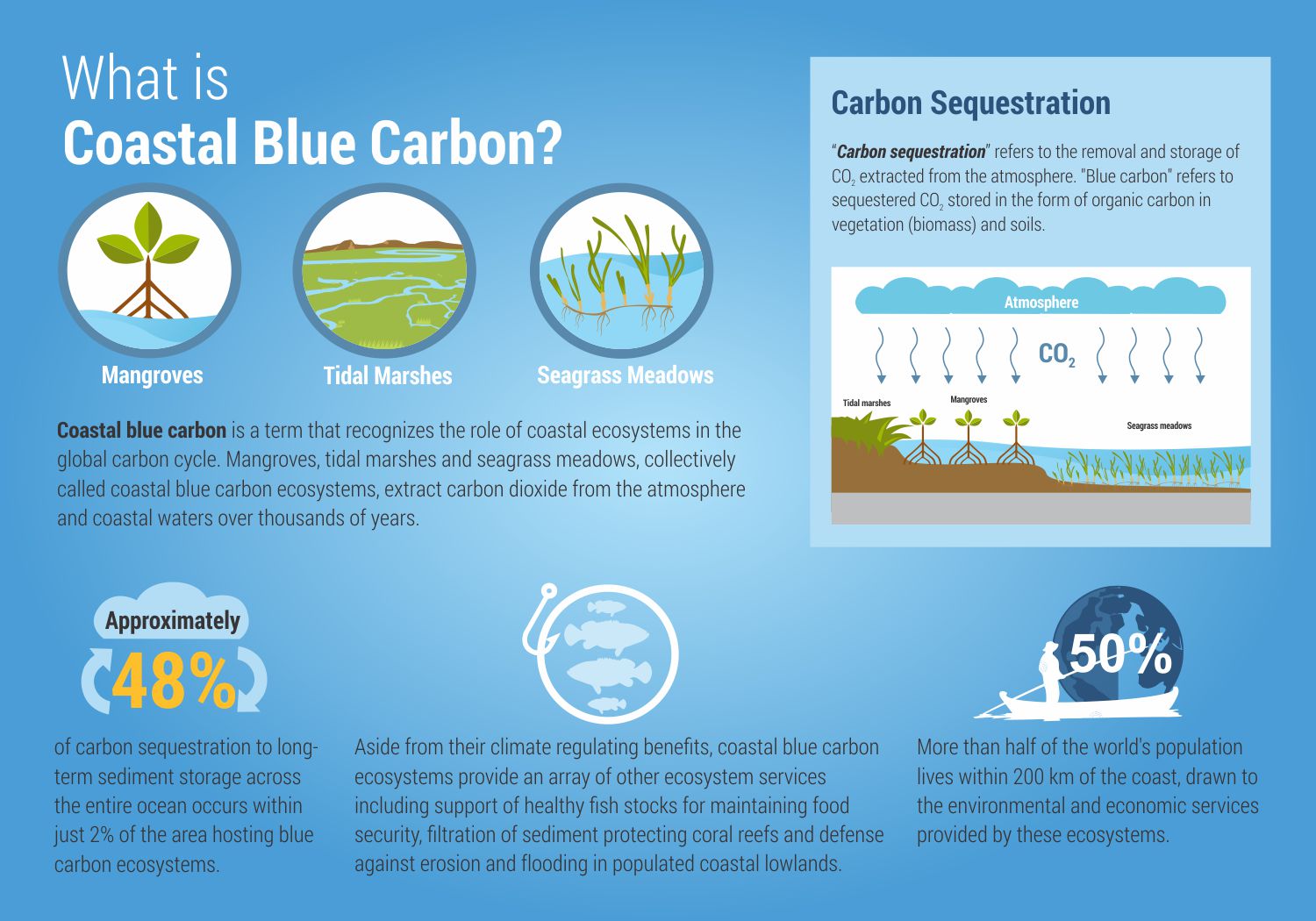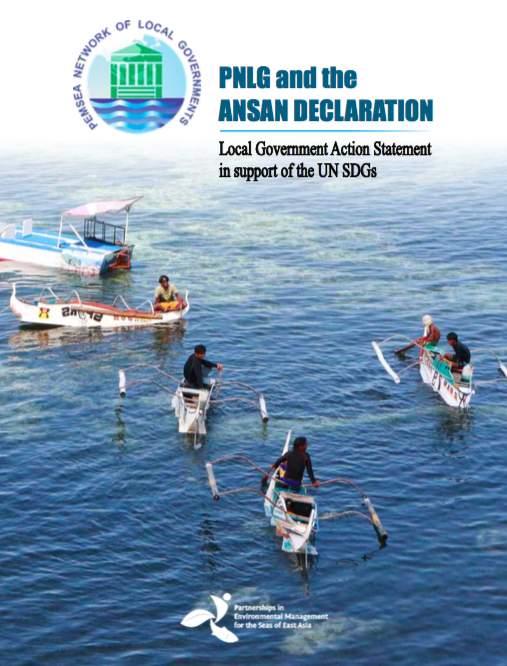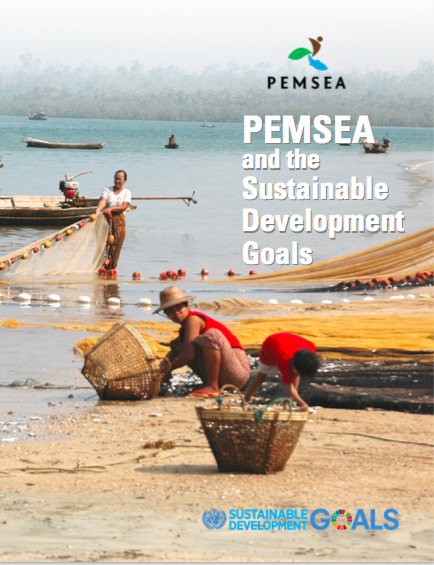
Breadcrumb
-
Practical Actions for Advancing Blue Carbon Initiatives
Learn more about the value of blue carbon in East Asia and actionable recommendations for countries to incorporate blue ecarbon ecosystems into integrated coastal management, climate response, biodiversity conservation and blue economy planning.
-
Youth Program Brochure
The PEMSEA Youth Program empowers young leaders to work towards coastal and ocean sustainability.
-
Local Solutions to the Global Sustainable Development Agenda
ICM Case Studies in the East Asian Seas Region
-
How does PEMSEA Contribute to the SDGs?
PEMSEA's Sustainable Development Strategy for the Seas of East Asia (SDS-SEA) is aligned with the UN Sustainable Development Goals.
-
State of Oceans and Coasts: Monitoring the SDGs, Promoting Blue Economy
Coastal and ocean ecosystem services contribute to the blue economy.
-
Infographic: Coastal Blue Carbon
Understand the status of coastal blue carbon ecosystems in East Asia.
-
PNLG and the Ansan Declaration
Local Government Action Statement in support of the UN SDGs
PNLG Members are already acting – through the implementation of ICM programs – to improve conservation efforts, protect biodiversity, adapt to climate change, reduce pollution, build sustainable communities, but progress too often goes unrecognized and is not measured or reported consistently. Sharing the impact of these ongoing efforts and catalyzing new actions is imperative, in part because of the recently adopted UN Sustainable Development Goals (SDGs), but also as a core objective of the PNLG network.
Real momentum can only occur when national and local governments collaborate – the updated SDS-SEA 2015 and its Implementation Plan 2017-2021 provide the prospect for improving alliances between the two levels of government. The timing is right.
PNLG Members have an enormous opportunity to make even greater impact. The PNLG Members’ actions in four sectors of the SDGs – water and sanitation, sustainable communities, climate, and food security and conservation – brings attention to and quantifies local government commitments and actions, provides investment opportunities and enhances investor confidence and capital flows into sustainable development efforts at the sub-national level.
-
PEMSEA and the Sustainable Development Goals
Since 2003, the Sustainable Development Strategy for the Seas of East Asia (SDS-SEA) has served as a platform for cooperation and coordinated action among country and non-country partners and collaborators within the framework of PEMSEA, or Partnerships in Environmental Management for the Seas of East Asia. PEMSEA is an international organization specializing in integrated coastal and ocean governance of the Seas of East Asia. It is a partnership arrangement comprised of 11 country and 20 non-country partners with a collective commitment to implement the SDS-SEA.
PEMSEA's main goal is the pursuit of the sustainable development of coasts and oceans through integrated management solutions. The solutions PEMSEA adopts recognize ecosystem health and resiliency and social well-being as integral parts of economic progress. Our vision is HOPE—Healthy Oceans, People and Economies. The Partner Countries strive to attain the SDS-SEA objectives and targets by improving coastal and ocean governance at the local, national and regional levels, scaling up ICM program coverage of the region's coastline, and boosting investments in blue economy.
The Sustainable Development Goals (SDGs), adopted by the UN in September 2015, provide 17 Goals and 169 targets to guide actions globally in key areas where government, the private sector and citizens will have to invest in order to transform economies and prosper within the social and ecological boundaries of the planet. There are a number of obvious synergies between the SDGs and the implementation of the SDS-SEA, in particular SDG 14: Life Below Water, SDG 6: Clean Water and Sanitation, SDG 11: Sustainable Cities and Communities, SDG13: Climate Actions, and SDG 17: Partnerships for the Goals.
There are challenges to achieving the SDGs and full implementation of the SDS-SEA. But PEMSEA Partners are fully determined and committed to overcome these challenges and ultimately to contribute to targets set forth by the SDGs through individual and combined actions aligned with the SDS-SEA.
